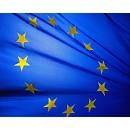Planning to travel around the European Union? Not sure what to do when in emergency or when your flight is canceled? Check out these tips released by the EU for all tourists getting ready to visit the good old Europe.
1/ Who to Call in an Emergency112 is the phone number that can be called to reach emergency services throughout the EU, from fixed or mobile phones, free of charge. It is available in all 27 Member States. Some member States have introduced 112 as their main emergency number, while in most Member States, 112 operates alongside national emergency numbers. Each Member State is responsible for the organisation of its own emergency services and the response to 112 and national emergency calls. |
2/ Avoid Road AccidentsEvery year 10,000 people die in road accidents in Europe due to drivers being under the influence of alcohol or drugs. One out of four accidents can be linked to excessive alcohol and drug consumption, even more so in the holiday period. The Commission adopted in January 2001 a recommendation for the level of alcohol permitted behind the wheel: 0.5 mg/ml in the blood for all drivers, 0.2 mg/ml in the blood for novice drivers and professional drivers. This recommendation is not legally binding and therefore the permitted level of alcohol can vary across Member States (e.g. Sweden, Czech Republic, Slovakia have adopted a zero-tolerance approach). Of course, the safest course of action is still to never drink and drive. |
3/ Flying in SafetyThe list of airlines banned in the European Union acts as a strong incentive to remedy safety deficiencies. Withdrawal from the list is indeed possible, when the parties concerned put effectively in place sound corrective action to comply with all relevant safety standards. The concept of a Community list is increasingly proving to serve as a preventive rather than punitive instrument for safeguarding aviation safety. This is illustrated by the numerous instances where the Community has successfully addressed potential safety threats well ahead of resorting to the drastic measure of imposing restrictions. This list has greatly contributed to making Europe’s skies safer and could be used to help gradually move towards an international strategy based on cooperation between countries around the world. These airlines are not allowed to fly to or from the EU. However, the EU cannot prevent banned airlines from continuing to fly elsewhere in the world. If you are planning to take a flight which takes off and lands outside the EU, you may wish to check yourself the EU’s blacklist to verify whether the airline in question is not banned from flying in the EU for safety reasons. |
4/ Security at AirportsAir passengers can only take liquids with them in individual containers with a maximum capacity of 100 milliliters each. These containers should be packed in one transparent, re-sealable plastic bag of not more than one liter capacity per passenger. These restrictions are necessary as the threat stemming from liquid explosives unfortunately still exists. Until adequate technology to detect such explosives has been developed and deployed at airports, passengers are only allowed bringing liquids in small quantities or if these are really needed during the journey for example medicines or baby food. All other liquids have to be packed in the checked baggage. |
5/ What to Do When Your Flight Is CanceledBefore going to the airport, check the time of departure (flights can be rescheduled). If your flight is cancelled or in case you are denied boarding, ask for reimbursement of the full cost of the unused ticket or segments, or rerouting to the final destination at the earliest convenience. You may also be entitled to compensation between €250 and €600 depending on the flight distance and the delays incurred when rerouted. Furthermore, the airline should inform you about your rights and the reason for the cancellation or the denied boarding. It should also provide you with assistance in relation to the waiting time (meals, drinks, communication facilities and a hotel room for the night, if necessary). If passengers feel airlines do not respond in a satisfactory manner to their complaints, they can lodge a complaint to the national enforcement body in the EU Member State (or in Iceland, Switzerland and Norway) where the incident happened. When the incident concerned an EU airline and it took place outside of an EU Member State, the passenger can lodge a complaint in the EU Member State of destination. For more about passenger rights – including the right to reimbursement – go here: http://ec.europa.eu/transport/passengers/index_en.htm |
6/ Influenza A (H1N1) & Denied BoardingIf you are denied boarding because you are a suspected case of Influenza A (H1N1) and the measure is neither based on a decision of a sanitary authority or a medical certificate, you should be entitled to reimbursement or rerouting as well as compensation. In other words, the decision to deny boarding should not be purely based on a discretionary and unilateral decision taken by the airline. |
7/ Disabled Persons & Passengers with Reduced MobilityThe non-discrimination of disabled persons and passengers with reduced mobility because of any permanent or temporary handicap is guaranteed for air passengers under existing EC regulation and for rail passengers under legislation coming into force on 3 December 2009. You are invited to notify the need for assistance to the airline or to the tour operator at least 48 hours before the flight departure. The managing bodies of airports will be informed accordingly and shall be responsible to provide assistance up to the aircraft gate; then assistance is to be provided by the airlines. The assistance is free of charge. |
8/ Web Site Price TransparencyApplying full price transparency is an obligation under the air services regulation. This means that when consumers book a flight ticket online, the final „comprehensive“ price must be available since the initial page, enabling people to compare prices across airlines and make a real choice. In case of optional price supplements, they have to be indicated in a clear and transparent manner. |
9/ Lost & Damaged BaggageIn the event of damage, you should complain to the airline within seven days and in the case of delay within 21 days from the moment when the baggage was placed at your disposal. Any other action in court must be brought within two years from the date of arrival. You can get reimbursed up to €1,100 by the airline company in case your luggage is lost or damaged. If you carry expensive items you should subscribe for private travel insurance, or you can benefit from a higher liability limit by making a special declaration at the latest at check-in and by paying a supplementary fee. In case of difficulties with the airline concerned it is advisable to refer to the national consumers‘ association in your country or to the European Consumer Centres Network (ECC-Net). |
10/ Travel PackageWhen consumers buy a travel package, they are entitled to know what they are paying for and what is included in the package deal under Council Directive 90/314/EEC of 13 June 1990 on package travel, package holidays and package tours. Any brochure made available to consumers must indicate clearly and accurately the price and all relevant information, such as destination, itinerary and the means of transport used, type of accommodation, meal plan, passport and visa requirements, health formalities, timetable for payment and the deadline for informing consumers in the event of cancellation. |
What are your passenger rights and how can you complain?If you have an enquiry about your rights and where to complain, you can write to EuropeDirect (http://ec.europa.eu/europedirect/index_en.htm). picture: tourism review
|





